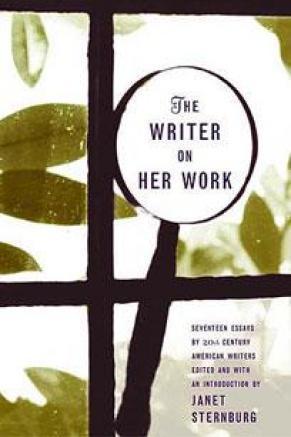The Blurring of Lines
Recently, while reading the Janet Sternburg-edited collection The Writer on Her Work, I had an unexpected epiphany (I know, epiphanies are always unexpected, but work with me). It was the realization that my life in 2012 is almost exactly Anne Tyler’s in 1980.
Tyler, the Pulitzer Prize-winning author of Breathing Lessons and The Accidental Tourist, contributed the book’s first essay, “Still Just Writing.” It begins with a list of all the real-world mundane events and responsibilities that keep her from writing when she wants to. The parallels with my own life right now–I’m the stay-at-home parent (or is the term “primary caregiver”? I can never remember) for two small children, and I write between events such as school, martial arts practice, acting class, various playdates and so forth–are pretty strong.* And I’m not the only one of my male writer friends in this situation.

The C-in-C back when we were full-time co-workers.
In all the essays in the book, the role of women in society forms a strong undercurrent. Comments from famous male authors explaining why women can’t be great writers (imagine hearing that in a college classroom now) are related, and examples from the past (Honor Moore’s tale of her grandmother who gave up painting because it was “too intense” is really fascinating) show how creative women struggled against both society and their own sense of isolation. In 1980 these struggles continued, but all the writers in the book have reached a point where they understand their desire to write is both irresistible and entirely acceptable, society be damned.
Now, the big difference with the life Tyler describes is crucial: thirty years ago, her life was the norm. It was what society expected women to do. It’s neither normal now, nor unheard-of, for the man to be the primary caregiver while the woman works out of the home. It is, in fact, a time when all the old roles described in Sternburg’s book are starting to twist and mutate. And sadly but perhaps inevitably, it’s being driven by economics, not social justice.
In fact, particularly within the so-called “creative community” of contemporary (and internet-linked) writers, artists and musicians, the traditional roles that Sternburg’s book discusses have certainly lost their edges, if not broken down entirely. Men can no longer find jobs lucrative enough to support their families; two incomes are the standard. In my case, my last full-time non-writing job did not pay enough to cover putting my youngest son in day care when he was a newborn. So I gratefully took the chance to become a full-time stay-at-home father, as well as a full-time writer. Both, for me at least, have paid off more than ever anticipated.
But are these changed permanent? Unless there’s a total collapse, eventually the economic system will recover, and jobs will become both better and easier to get. What happens to all these nontraditional families then? When the soldiers came back from World War II, women didn’t necessarily want to leave the work force to give the men back their jobs. And from that, eventually (it’s a hugely simplified explanation, I know) came the first feminist movement. So when jobs are again available, will men want to give up raising their kids to return to the traditional workplace?
I don’t know. We’ll see. But in the meantime, The Writer on Her Work has me looking at myself and my family with a whole new appreciation.
*Of course I don’t have her talent. That’s not what I’m saying at all.




